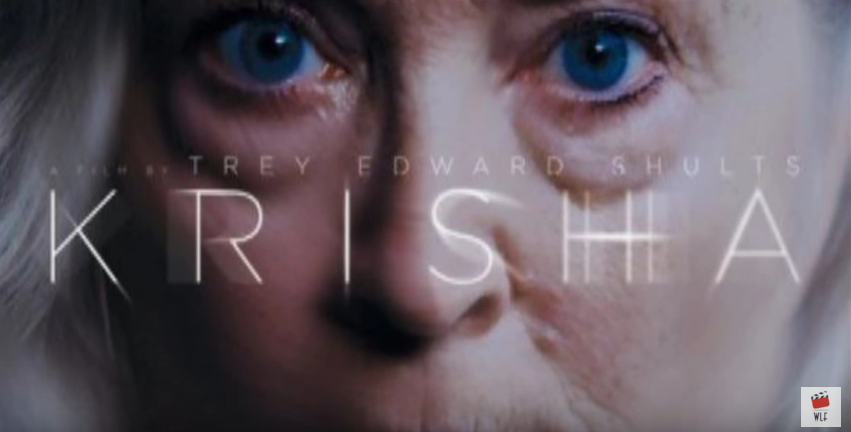I really don’t know what makes Krisha feel so much like a horror film. The idea of a recovering alcoholic coming home to celebrate a family Thanksgiving in search of reconciliation and a chance to help with the turkey isn’t something that should make a viewer (especially a 20-year-old one) uncomfortable. Yet several times in first-time director Trey Edward Shults’ holiday film, I had to look away.
Maybe I did because of the film’s lead, Krisha Fairchild. She’s one of the few actors in the movie with any kind of credits to her name, and she happens to be the director’s aunt. As the titular character she is devastating, going from hesitantly open to menacingly regretful. Many times the camera lingers on her face, and even that is enough. Those eyes, that mouth — they are imperfect and weathered, the kind of features not often shown on the big screen.
Maybe what got under my skin is the direction. Shults certainly has a good reputation in the film world (he’s worked with Terrence Malick before), but this is his directorial debut. He uses the opportunity to put forth a style and technique all his own, creating shots that feel raw but utilize agile camera work and creative angles. Shults himself plays Trey, Krisha’s son who has been living with his aunt and uncle while she tries to get clean. He’s the one she’s mostly there to see and the one whose opening “hello” is the most strained.
But while the director and his star do enough work to make this film jarring, what really puts it into the category of “legitimately discomforting” is the accomplishment at its core: capturing madness. Throughout the film, Shults finds a way to let the viewer know that under the holiday facade lies dark disquiet. Its presence is established right away; then that darkness starts to move to the surface, slowly at first and then all at once.
Many films try to capture madness, in their acting and their camera work and maybe even in their music. They try to put the viewer inside of someone’s head and then shake that head around. But that’s hard to do. And when it’s not done well, the result can be off-putting. But in Krisha, Shults succeeds almost to perfection — not just for a first-time director, but for any director. It’s really something to enjoy. Krisha is the type of movie that you’re not necessarily going to see ever again. It exists in its own little corner of the movie universe, thriving in its uniquely frightening way.



